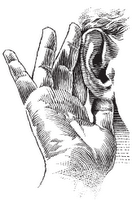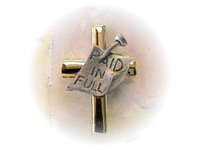After all … tomorrow is another day.
 What is tomorrow?
What is tomorrow?Sure, tomorrow is another day, but how do we view it?
Something we dread? Something we look forward to?
Some thought provoking quotes about tomorrow, which is often the busiest day of the week. I have attributed credit for the quote when able.
We worry about what a child will become tomorrow, yet we forget that he is someone today -Stacia Tauscher
One today is worth two tomorrows. -Benjamin Franklin
The only limit to our realization of tomorrow will be our doubts of today. -Franklin Delano Roosevelt
Tomorrow do thy worst, I have lived today. -John Dryden
Live each day the fullest you can, not guaranteeing there'll be a tomorrow, not dwelling endlessly on yesterday. -Jane Seymour
You pile up enough tomorrows, and you'll find you've collected a lot of empty yesterdays. -Harrold Hill
The crisis of today is the joke of tomorrow. -H.G. Wells
Today's greatest labor-saving device is tomorrow. -Woodrow T. Wilson quotes
Yesterday is a canceled check; tomorrow is a promissory note; today is the only cash you have - so spend it wisely.
Please God, make my words today sweet and tender, for tomorrow I may have to eat them.
Your future is created by what you do today, not tomorrow. -Robert Kiyosaki
Yesterday's the past, tomorrow's the future, but today is a gift. That's why it's called the present.
The lazier a man is, the more he plans to do tomorrow. -Norwegian Proverb
There's something about death that is comforting. The thought that you could die tomorrow frees you to appreciate your life now. -Angelina Jolie
A politician needs the ability to foretell what is going to happen tomorrow, next week, next month, and next year. And to have the ability afterwards to explain why it didn't happen. -Winston Churchill
You don't save a pitcher for tomorrow. Tomorrow it may rain. -Leo Durocher
Never leave that till tomorrow which you can do today. -Benjamin Franklin
You don't really know your own worth because you don't know what may happen tomorrow. -Rick James
I am tomorrow, or some future day, what I establish today. I am today what I established yesterday or some previous day. -James Joyce
Because He lives I can face tomorrow,
Because He lives all fear is gone;
Because I know He holds the future
And life is worth the living just because He lives.
-Gloria & William J. Gaither, Because He Lives
-Thomas O. Chisholm, Great Is Thy Faithfulness
Learn from yesterday, live for today, hope for tomorrow. - Albert Einstein
To worry about tomorrow is to be unhappy today.
If tomorrow never comes
Will she know how much I loved her?
Did I try in every way to show her every day
That she's my only one?
And if my time on earth were through
And she must face the world without me
Is the love I gave her in the past
Gonna be enough to last
If tomorrow never comes?
-Kent Blazy & Garth Brooks
Courage doesn't always roar. Sometimes courage is the quiet voice at the end of the day saying, "I will try again tomorrow. -Mary Anne Radmacher
Many fine things can be done in a day if you don't always make that day tomorrow.
Remember, today is the tomorrow you worried about yesterday. -Dale Carnegie
You cannot escape the responsibility of tomorrow by evading it today. -Abraham Lincoln
If today was not an endless highway
If tonight was not an crooked trail
If tomorrow wasn't such a long time
Then lonesome would mean nothing to me at all.
- Bob Dylan
Do not boast about tomorrow, for you do not know what a day may bring. -Proverbs 27:1 in The Holy Bible, ESV
Come now, you who say, "Today or tomorrow we will go into such and such a town and spend a year there and trade and make a profit"-- yet you do not know what tomorrow will bring. What is your life? For you are a mist that appears for a little time and then vanishes. Instead you ought to say, "If the Lord wills, we will live and do this or that." As it is, you boast in your arrogance. All such boasting is evil.-James 4:13-16 in The Holy Bible, ESV
Tonight you're mine completely
You give your love so sweetly
Tonight the light of love is in your eyes
But will you love me tomorrow?
-The Shirelles, Will You Still Love Me Tomorrow?
Today is the tomorrow you worried about yesterday.
Good executives never put off until tomorrow what they can get someone else to do today. -John C. Maxwell
Worry never robs tomorrow of its sorrow, it only saps today of its joy. -Leo F. Buscaglia
"Therefore do not be anxious about tomorrow, for tomorrow will be anxious for itself. Sufficient for the day is its own trouble." -Jesus the Christ in Matthew 6:34 in The Holy Bible, ESV

After all ... tomorrow is another day and thinking about tomorrow really motivates us to think about today.


























